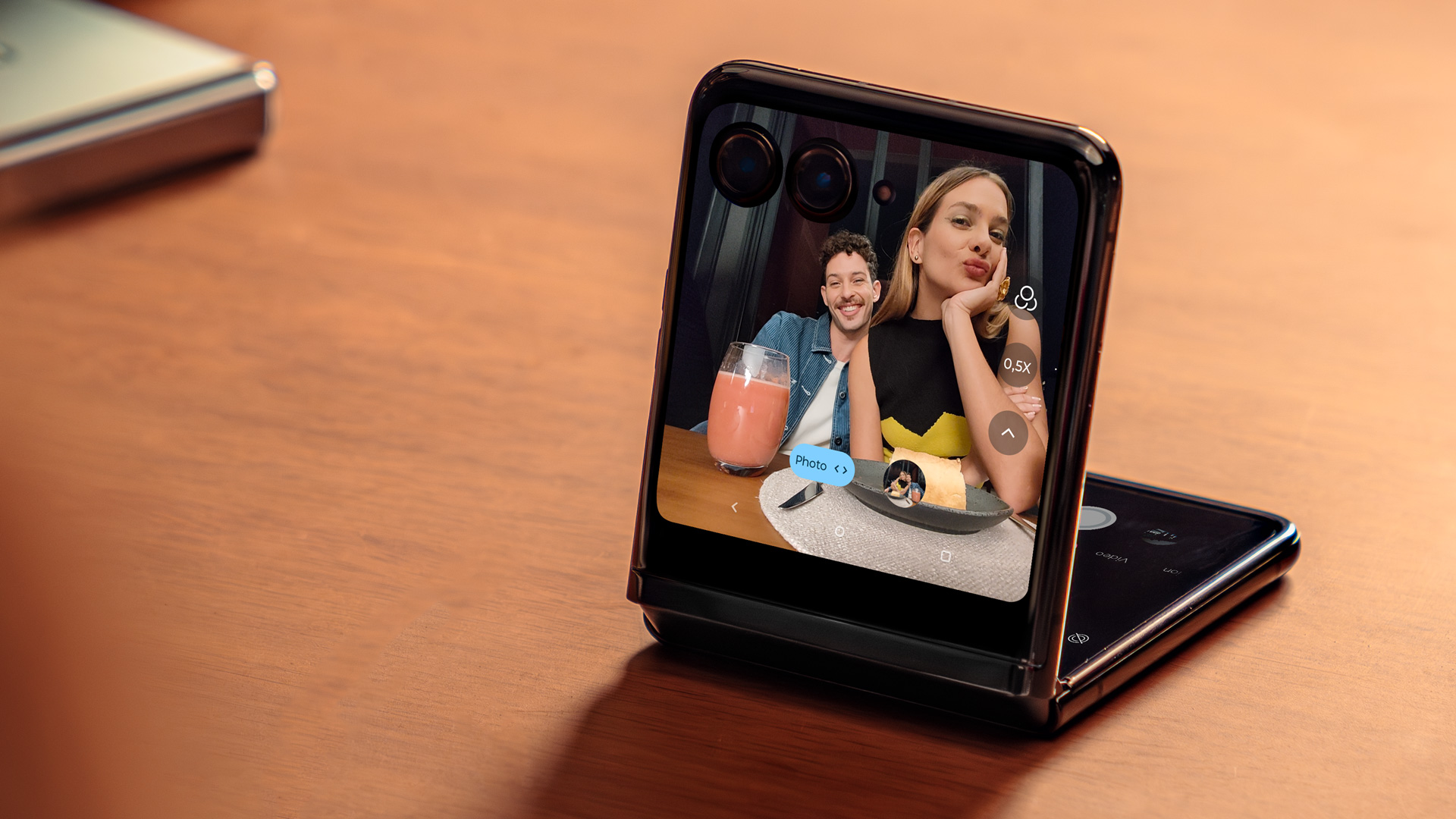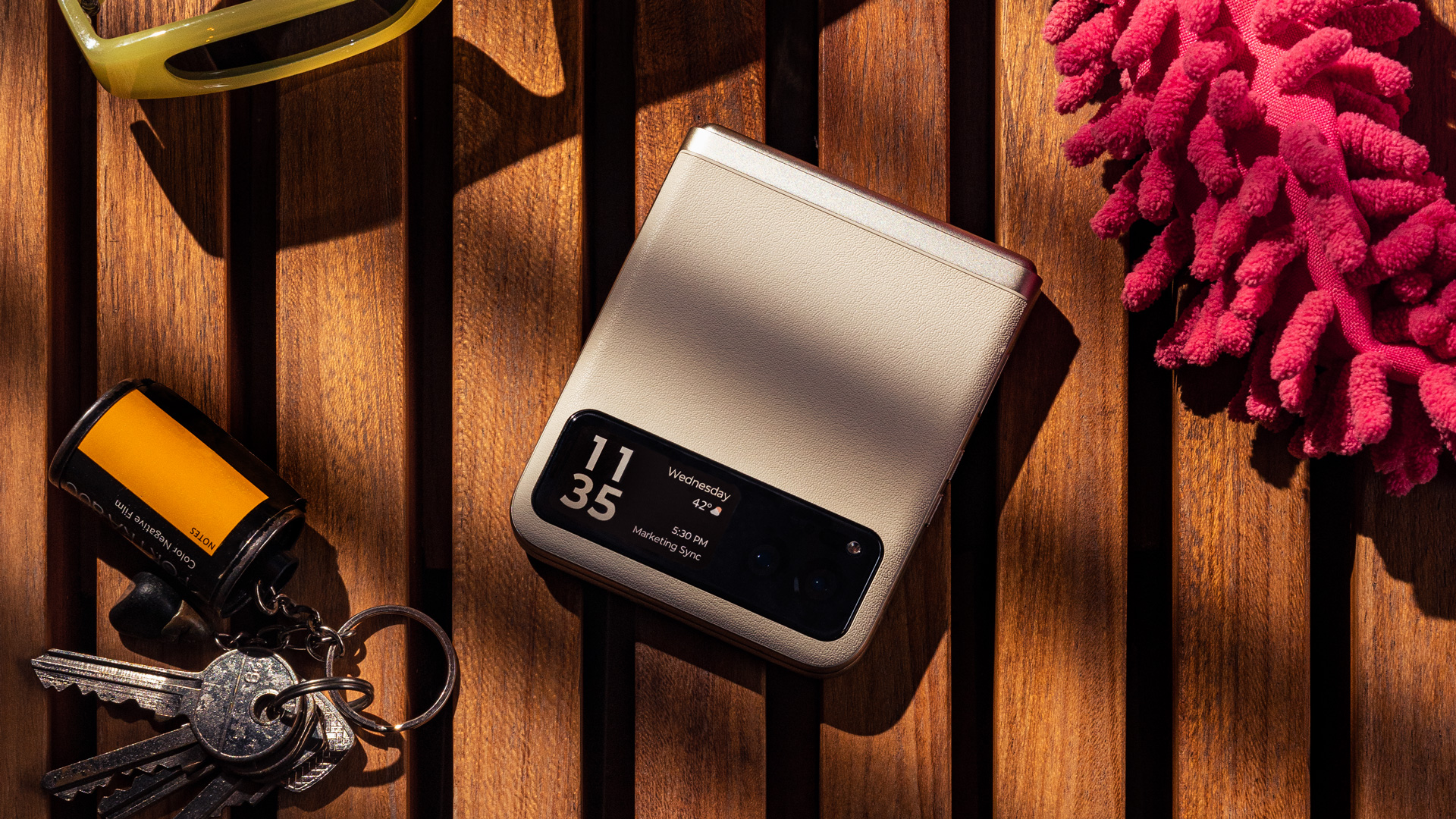
Motorola's new RAZR 40 and RAZR 40 Ultra (the RAZR (2023) and RAZR Plus (2023) in North America) have been announced alongside a color-popping Viva Magenta version of its good-looking Edge 40.
The lower-cost RAZR 40 starts at £799.99, making it the most affordable flip phone to date, while the pricier RAZR 40 Ultra costs £1099.99. While both phones are only confirmed for Europe, the North American variants look set to cost a fair bit less, with the RAZR Plus launching at just $999, and the standard RAZR 2023 price still to be confirmed.
There hasn't been much action in the large-form foldable space outside China, the flip phone market is filling up. There's Samsung's ubiquitous Galaxy Z Flip 4, the Oppo Find N2 Flip, and last year's RAZR (2022) – all good phones, which is more than can be said for past-gen foldables.

So what's the key difference between the two RAZRs? The most obvious is that the RAZR 40 Ultra has a huge front display that takes up virtually all the fascia, while the RAZR 40's is much more modest, not dissimilar to the Galaxy Z Flip 4's cover screen. They also have different cameras and components, so let's dive into each in a little more detail.
Motorola RAZR 40 Ultra / RAZR Plus (2023)
Motorola's flagship foldable has an eye on fashion – and that shouldn't come as a surprise, after all, Moto is the brand behind the iconic RAZR line, once the hot pink accessory to have, since the noughties, Moto's brand has evolved.
Over the last few years, especially, RAZRs have been bundled in with other foldables, falling under the category of geek fodder. Now, though, flip phones are less of a novelty than they were even last year, and Moto's set on bringing it back to fashion with the RAZR 40 Ultra.
Available in the Pantone color of the year, Viva Magenta, this fruity choice seems like a mature take on the hot pink RAZR of old. It's also available in Glacier Blue and Infinite Black for anyone after more traditional styling.

The big news here is the phone's screens – specifically the cover screen. With a large, 3.6-inch display and full freedom to run apps across it, not just pre-loaded widgets, the RAZR 40 Ultra can be used to the full, whether open or closed.
We tried it out with the Kindle app and Disney+, and while the front screen isn't exactly cinematic, thanks to crisp visuals, 144Hz smoothness, and a punchy picture, it was perfectly usable.
Open the phone up and the huge 6.9-inch screen takes center stage with its tall 22:9 aspect ratio. Moto's relatively stock take on Android 13 and a Qualcomm Snapdragon 8+ Gen 1 chip power the experience, while a 3800mAh battery keeps it ticking along. The phone also gets wireless charging – a novelty on foldables, as well as 33W turbocharging, shipping with a charger in the box.
As far as the cameras go, the RAZR 40 Ultra misses out on a big sensor sharpshooter, instead opting for a modest 12MP setup, with 1.4-micro pixels, and a 1/2.55-inch sensor. Helping things along are OIS and an f/1.4 aperture, and the 13MP ultra-wide has autofocus, so doubles up as a macro camera.
Motorola RAZR 40

Alongside the high-end RAZR, a lower-cost, small-screen version is set to challenge the perception that foldables are prohibitively expensive. The RAZR 40 / RAZR (2023) launches with a more modest Qualcomm Snapdragon 7 Gen 1 chipset, features a larger 4300mAh battery, and a 64MP main camera that pixel bins shots to capture at 16MP by default.
Sticking with its fun colors, Motorola's launching the RAZR 40 / RAZR (2023) in Sage Green, Vanilla Cream and Summer Lilac, and the phone also gets the same wireless charging of its pricier sibling, as well as a large, 6.9-inch, 144Hz, smooth pOLED main display on the inside.
The RAZR 40 Ultra / RAZR Plus is available to buy from today, and the RAZR 40 / RAZR (2023) should be available in the coming weeks.
Read more: To see how other clamshell phones stack up, read our guide to the best flip and foldable phones.




.jpg?w=600)


